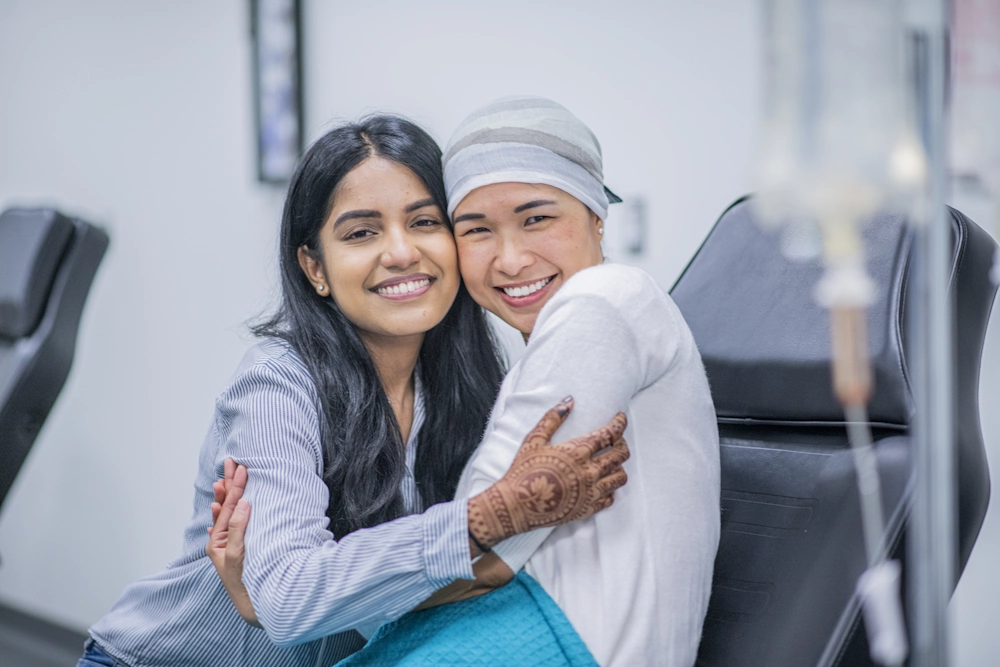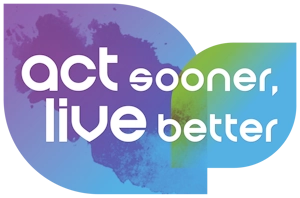At Pantai Hospital Kuala Lumpur, the team of clinical oncologists work hand-in-hand with other healthcare professionals—surgeons, physicians, nuclear medicine physicians, medical physicists, radiography therapists, pathologists, specialised oncology nurses, counselors, dieticians, and pharmacists to provide patients a holistic approach in the prevention, screening, diagnosis, treatment, palliation and psycho-social care.
With advances in medical technology, there are now many treatment options available for cancer, including:

Radiotherapy
Radiotherapy, also known as radiation therapy, uses focused, high-energy x-ray beams to destroy and damaged cancer cells by destroying the genetic material that controls cancer cells to grow and divide. Cancer cells begin to die days or weeks after treatment starts and continue to die for weeks or months after it finishes.
Among the benefits of Radiotherapy are:
- Tumour Shrinkage and Control
- Remission and Curative Potential
- Palliative Symptom Relief
- Enhancing Treatment Outcomes with Combined Therapies
Radiotherapy effectively reduces the size of tumours, controlling their growth and preventing further spread.
Radiotherapy is applied with the goal of achieving a curative outcome, leading to remission by targeting and eliminating cancer cells.
Radiotherapy provides palliative care by relieving cancer-related symptoms, such as pain, bleeding, or obstruction, through targeted tumour reduction.
Radiotherapy enhances the overall effectiveness of other treatments, such as surgery and chemotherapy, leading to improved outcomes.

Chemotherapy
Chemotherapy is a widely used anti-cancer treatment that employs drugs to destroy cancer cells or slow their growth. It is effective for treating a variety of cancers, either alone or in combination with other treatments like targeted therapy/ immunotherapy, surgery and radiation therapy.
Many different chemotherapy drugs are available. Chemotherapy drugs can be used alone or in combination to treat a wide variety of cancers.
There are a variety of settings in which chemotherapy may be used in people with cancer:
As a primary treatment: Chemotherapy may be the sole treatment to cure the cancer without other therapies.
Adjuvant therapy: After treatments like surgery, chemotherapy can target and kill any remaining hidden cancer cells.
Neoadjuvant therapy: Chemotherapy can help shrink tumors before other treatments such as surgery or radiation, making them more effective.
Palliative chemotherapy: In cases where curing the cancer is not possible, chemotherapy may help relieve symptoms by reducing the cancer's size.
Chemotherapy for conditions other than cancer
Some chemotherapy drugs have proved useful in treating other conditions, such as:
Bone marrow diseases. Diseases that affect the bone marrow and blood cells may be treated with a bone marrow transplant, also known as a stem cell transplant. Chemotherapy is often used to prepare for a bone marrow transplant.
Immune system disorders. Lower doses of chemotherapy drugs can help control an overactive immune system in certain diseases, such as lupus and rheumatoid arthritis.
Risks and Side Effects
Chemotherapy works by killing rapidly dividing cancer cells. As it wipes out cancer cells, it also can destroy fast-growing healthy cells, which may cause side effects.
Lower blood cell production.
Your bone marrow's ability to make blood cells might decrease and cause:
- anemia
- bleeding
- susceptibility to infections- You may make fewer white blood cells, which protect your body from infections. An elevated body temperature may be the earliest sign of an infection.
Gastrointestinal symptoms
- Diarrhea
- Nausea and vomiting
- Constipation
- Hair loss
- Mouth ulcer

Immunotherapy
Introduction
Immunotherapy is a ground-breaking approach to cancer treatment that harnesses the body's immune system to recognise and destroy cancer cells. Unlike chemotherapy and radiotherapy, immunotherapy boosts the immune system's natural defenses to fight the cancer cell.
Benefits
Durable Response: It can lead to long-lasting remissions by providing a sustained immune response against cancer.
Versatility: Effective against various types of cancers, including melanoma, lung cancer, kidney cancer, and certain leukaemia and lymphomas.
Risks and Side Effects
Immune-Related Side Effects: Immunotherapy can cause inflammation in healthy tissues, leading to side effects like skin rash, fatigue, diarrhea, and liver inflammation.
Variable Response: Not all patients respond to immunotherapy, and its effectiveness can vary depending on the type of cancer and the individual.

Hormonal Therapy
Hormone therapy is a cancer treatment that slows or stops the growth of cancer that uses hormones to grow. Hormone therapy is also called hormonal therapy, hormone treatment, or endocrine therapy.
How Is Hormonal Therapy Used?
Hormonal therapy serves two primary purposes:
- Treating Cancer: By slowing or stopping tumor growth, it can reduce the risk of cancer returning.
- Relieving Symptoms: Particularly helpful for men with advanced prostate cancer who may not be candidates for surgery or radiation therapy.
Types of Hormone Therapy
Hormone therapy falls into two broad groups, those that block the body’s ability to produce hormones and those that interfere with how hormones behave in the body.
Hormonal therapy can be given in two main ways:
- Oral medications: Pills that are taken by mouth.
- Injections: Hormone therapy is given by a shot in a muscle in your arm, thigh, or hip, or right under the skin in the fatty part of your arm, leg, or belly.
Which Types of Cancer Benefit from Hormonal Therapy?
Hormonal therapy is commonly used for cancers that rely on hormones for growth, such as:
- Breast cancer
- Prostate cancer
- Endometrial (uterine) cancer
Side Effects of Hormone Therapy
Hormone therapy works by blocking your body's hormone production or altering how hormones function, which may lead to unwanted side effects. The side effects you experience will vary based on the type of hormone therapy you undergo and how your body reacts to it. Responses to the same treatment differ from person to person, so side effects are not the same for everyone. Additionally, certain side effects may differ depending on whether you are male or female.
Some common side effects for men who receive hormone therapy for prostate cancer include
- Hot Flashes
- Loss/Decreased Libido
- Weakened Bones
- Diarrhea
- Nausea
- Enlarged and Tender Breasts
- Fatigue
Side effects in women who receive hormone therapy for breast cancer include
- Hot Flashes
- Vaginal Bleeding
- Fatigue
- Menopausal Symptoms
- Osteoporosis
- Weight Gain
- Headaches
- Mood Changes
- Thromboembolic Events

Targeted Therapy
Targeted therapy is a type of cancer treatment that directly identifies, and attacks cancer cells based on their unique genetic mutations or proteins. Unlike chemotherapy, which affects all rapidly dividing cells, targeted therapy specifically focuses on the molecular and genetic changes that drive cancer growth.
For cancers that no longer respond to standard therapies, targeted drugs can offer an alternative. They are especially effective in slowing or halting the progression of advanced or metastatic cancers.
Targeted therapies work by:
- Stopping the signals that allow cancer cells to grow uncontrollably.
- Preventing the formation of new blood vessels that cancer needed to grow.
- Directly inducing cancer cell death (apoptosis)
Targeted drugs are often combined with chemotherapy, radiation, or immunotherapy to enhance the overall effectiveness of cancer treatment. This ensures a comprehensive approach to tackling various aspects of cancer progression.
Why Choose Us?

450
Licensed
Beds

30+
Treatment
Modalities

26
Chemo
Bay

38
Medical
Specialities

200+
Specialist
Doctors

30,000+
Patient
Served












